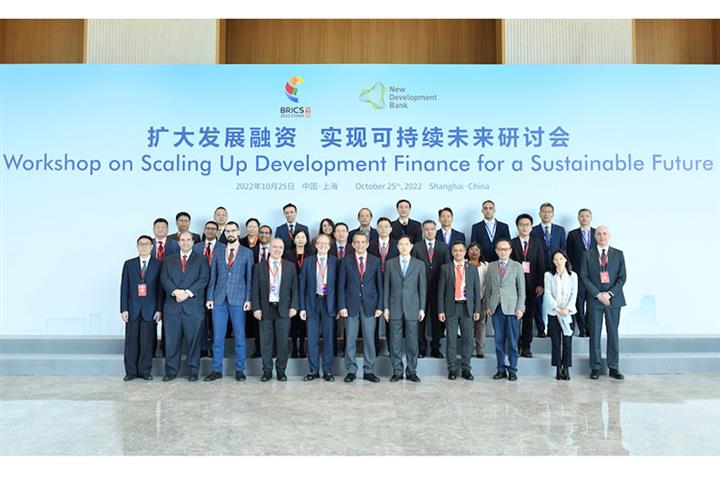 New Development Bank to Lend USD30 Billion to Support Global Growth Over Five Years
New Development Bank to Lend USD30 Billion to Support Global Growth Over Five Years(Yicai Global) Oct. 26 -- The New Development Bank, a multilateral development bank set up by the BRICS nations, will lend USD30 billion to support global growth and sustainable development projects during a five-year period that started with this year.
Forty percent of the loans will go to climate change mitigation and adaptation projects, including energy transformation, NDB Vice President Zhou Qiangwu said on the sidelines of a seminar at the bank’s headquarters yesterday. Other key areas include clean energy, transport infrastructure, urban development, water resources management and sanitation, as well as social and digital infrastructure.
The Shanghai-based NDB will use 30 percent of the USD30 billion to fund non-sovereign businesses, Zhou added, noting that 30 percent will be lent in the currencies of the borrowers. Twenty percent of the projects will be co-funded by NBD and other multilateral development banks.
Founded in 2015, the New Development Bank was originally called the BRICS Development Bank, or BRICS Bank, after its founders -- Brazil, Russia, India, China, and South Africa. It is endowed with USD50 billion in capital.
Since its inception, the NBD has approved USD32 billion of loans to support more than 90 infrastructure and sustainable development projects. It is committed to becoming a global lender in five years, opening membership to United Nations members. Last year, the bank welcomed Bangladesh, Uruguay, the United Arab Emirates, and Egypt.
“The Chinese government supports the NDB to absorb new members in a steady manner to work together to build the bank into a new type of multilateral development body in the 21st century,” Chinese Finance Minister Liu Kun, who is also a director of the NDB, said in the opening speech at yesterday’s seminar.
The NDB's headquarters will be open to visitors from next March, as the bank aims to make the 150-meter building in Pudong New Area a landmark accessible to all, just like those of the World Bank Group and International Monetary Fund. Building work on the HQ started in September last year.
Editors: Tang Shihua, Futura Costaglione